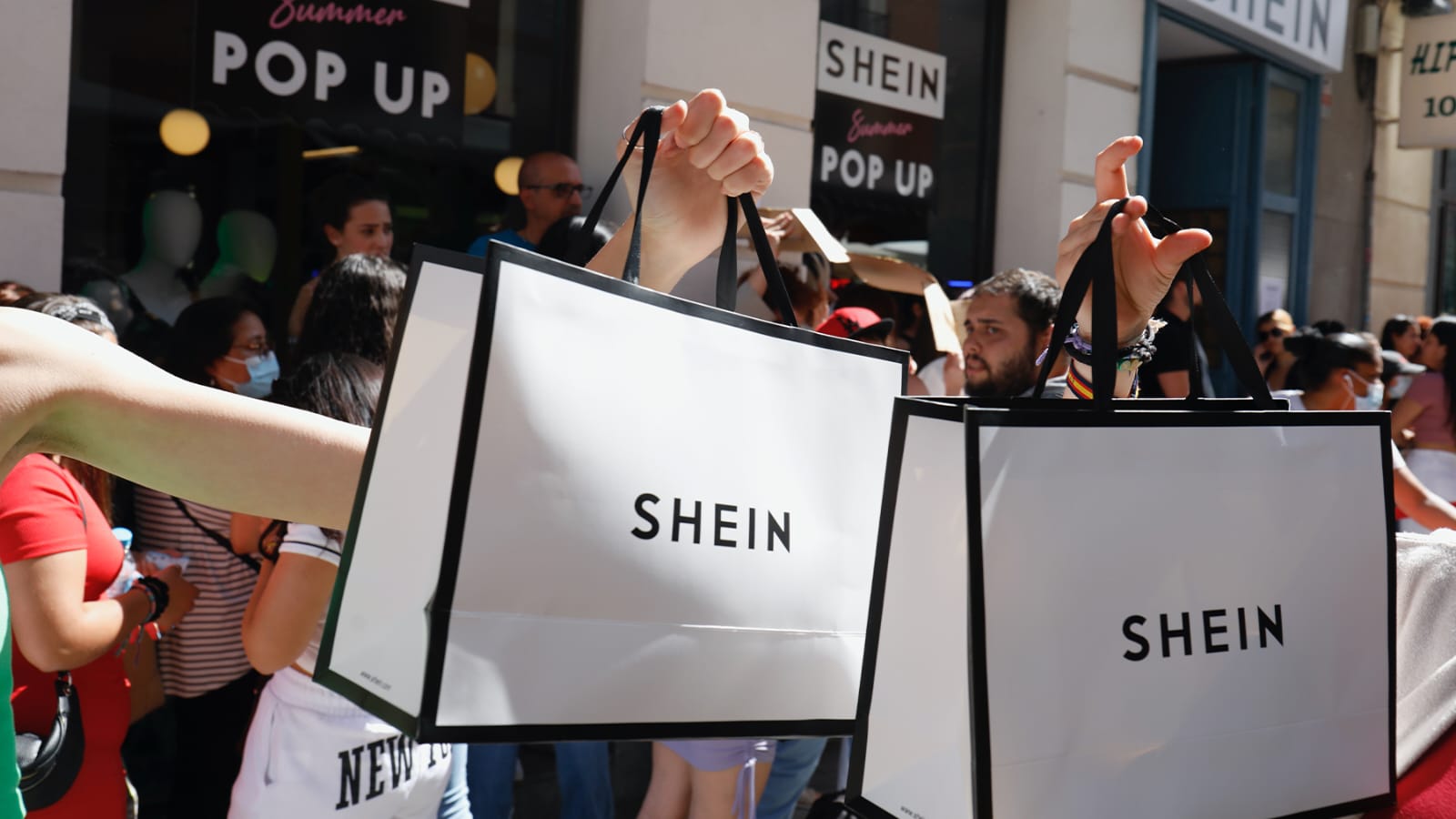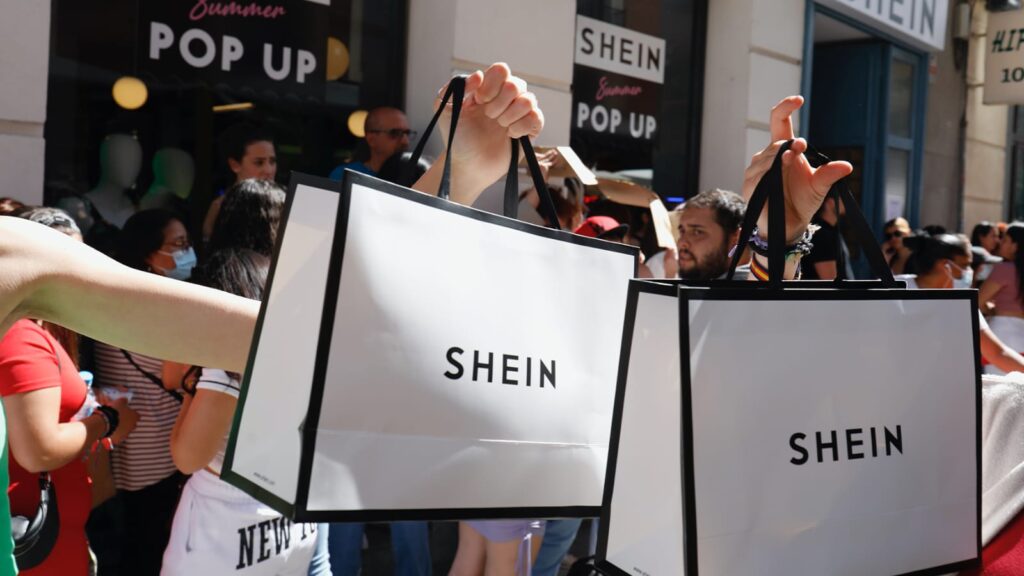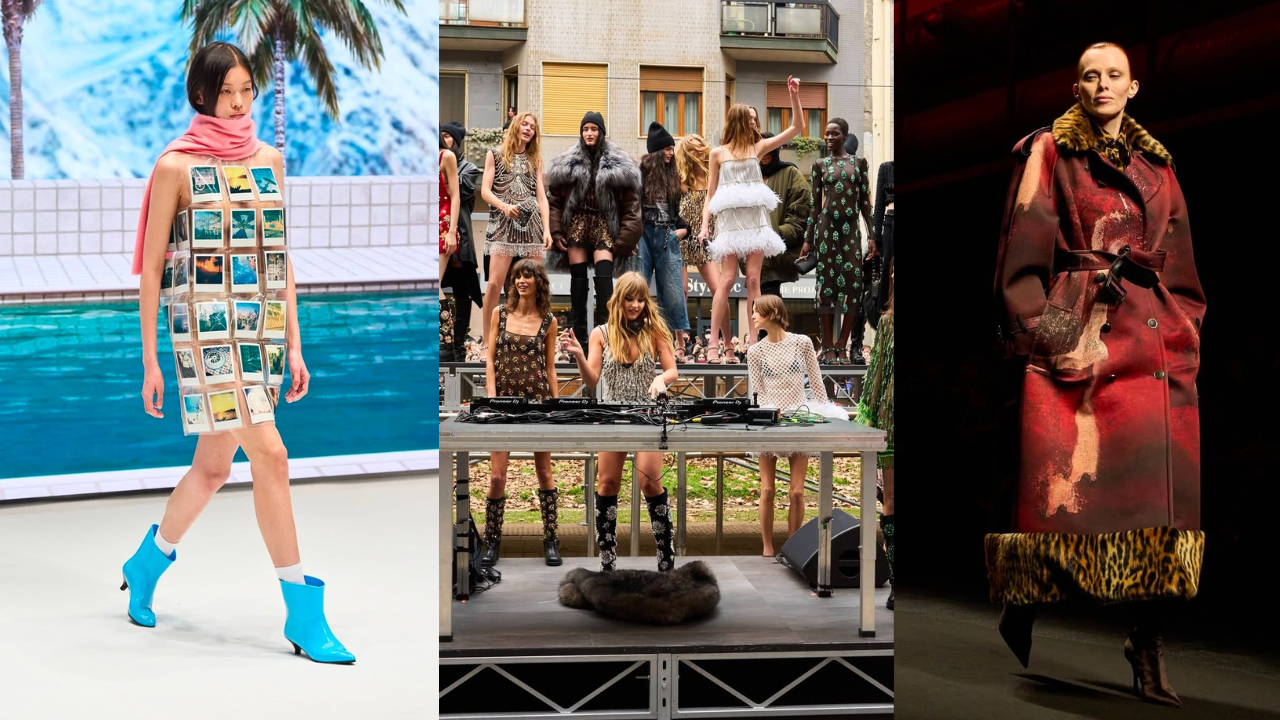Business
Pop Culture Recap: Robert De Niro received an honorary Palme d’Or, Gucci unveiled its Cruise 2026 collection in Florence.

From iconic celebrations and creative showcases to innovative product launches and highly anticipated tours, there has been a lot that grabbed people’s attention all around the world. Here’s a brief recap of some of the most talked-about pop culture moments this week.
Robert De Niro Honored at Cannes 2025

At the 78th Cannes Film Festival, which took place from May 13 to May 24, 2025, legendary actor Robert De Niro was given an honorary Palme d’Or during the opening ceremony on May 13, in recognition of his incredible contributions to cinema throughout his life, and the award was presented to him by fellow actor Leonardo DiCaprio, who has worked with him in several films. During his speech, De Niro did not hold back as he criticized U.S. President Donald Trump by calling him “America’s philistine president” and also spoke out against the proposed tariffs on foreign films, saying that such policies are harmful to both art and democracy and should be challenged.
Gucci Cruise 2026: A Return to Where It All Began

On May 15, Gucci presented its Cruise 2026 collection at the historic Palazzo Settimanni in Florence, which holds a special place in the brand’s story because it is where the House’s archive is located and where its journey began back in 1921. The brand’s decision to return to Florence for this collection felt like a full-circle moment, especially now as it enters a new creative phase with Demna Gvasalia taking over as creative director in just a few months.
The setting in Florence, a city known for its rich cultural heritage and strong connection with fashion, was the perfect choice for this show, and even the CEO Stefano Cantino mentioned how deeply Gucci and Florence are connected by saying “Gucci is Florence and Florence is Gucci,” which highlights how much the city has shaped the brand’s identity and vision over the years. The Cruise 2026 collection felt fresh and playful while still keeping the elegance and glamour that Gucci is known for, with materials like leather, velvet, and fur making a strong impression along with long gowns that stood out on the runway, especially one dramatic polka-dot gown that had a sculpted triple bow on one shoulder, which was one of the highlights of the show.
This collection gave a glimpse into what fashion might look like in 2026, with styles that felt soft, quiet, and chic but still left room for bold shapes and silhouettes, as seen in the use of structured cigarette pants, formal-looking skirts, floral and leather bottoms, and the return of the iconic GG belt from the archives. The overall colour palette was subtle and elegant, with shades of khaki and other neutral tones bringing calmness and depth to the collection, which showed that Gucci is moving toward a more refined and thoughtful direction while still celebrating its roots and embracing a modern sense of creativity.
In the end, this Cruise 2026 show was not just about showcasing a new collection but also about revisiting the House’s origins, reconnecting with its history, and stepping into a new chapter with confidence and style.
Kim Kardashian’s SKIMS Unveils Needle-Free Nipple Piercing Collection

In May 2025, Kim Kardashian’s brand SKIMS launched a bold new product that quickly grabbed attention on social media, as the brand introduced needle-free nipple piercings that are designed to look like real piercings without the need for any actual piercing, making it a fun and temporary way for people to try the look without any long-term change. This new drop fits perfectly with SKIMS’ daring and modern style, as the brand continues to push the boundaries of what intimate clothing and accessories can be by mixing fashion with innovation in a way that gets people talking.
BLACKPINK’s 2025 Deadline World Tour

On Friday, May 23, Blackpink gave their fans a glimpse of what’s coming next by dropping a short teaser video for their upcoming stadium tour, which they have officially named the “Deadline World Tour,” and in this dramatic 30-second clip, the word “DEADLINE” slowly rises out of a sparkling pink glitter pool while intense music plays in the background, building excitement around their return to the stage. The teaser comes around three months after the group first revealed that they would be touring again after three years, with concerts planned across North America, Europe, and Asia. The tour will begin in their home city of Seoul and then continue with shows in four major North American cities—Los Angeles, Toronto, Chicago, and New York—scheduled for mid-July, and to wrap up, the group is also set to perform at the Tokyo Dome in Japan in mid-January 2026, making this comeback tour one of the most anticipated events in K-pop.
Also Read: Dupatta Labeled as European Aesthetic is a Case of Cultural Erasure
Follow us for more : Dis_cultured
Business
France’s Reckoning With Ultra-Fast Fashion: Why Shein Is at the Center of a Larger Conversation?

There appears to be a quiet yet undeniable shift underway in how nations are beginning to reckon with the fashion industry, particularly the segment that thrives on speed, relentless volume, and the seductive promise of impossibly low prices. In 2025, France has emerged as one of the first major economies to confront this hyper-accelerated model head-on, not merely by issuing fines or launching investigations, but by challenging the very system that enables it. At the center of this reckoning stands Shein, the Chinese retail juggernaut that has become synonymous with algorithm-driven production. Yet, what makes this moment in France especially significant is not only the legal action being taken against a single company, it is the broader cultural and ethical inquiry being posed. With growing urgency, the country seems to be asking whether we can continue to dress ourselves at this breakneck pace, cloaked in convenience and novelty, without confronting the environmental, human, and psychological costs that are too often obscured by polished interfaces.
€40 Million Fine for Misleading Practices
In July 2025, France’s Directorate General for Competition, Consumer Affairs and Fraud Control (DGCCRF), the country’s principal consumer protection authority, levied a €40 million fine against Shein, marking one of the most high-profile regulatory actions yet against a fast fashion giant. The fine followed an extensive investigation conducted between October 2022 and August 2023, which uncovered a pattern of misleading business practices at the centre of Shein’s digital storefront. More than half of the discounts promoted on its website were found to be deceptive, offering no tangible benefit to the consumer, while others relied on inflated original prices to manufacture the illusion of savings. Even more concerning to regulators were the company’s sustainability claims: bold assurances of a 25% reduction in greenhouse gas emissions and microfiber pollution were, as the DGCCRF concluded, entirely unsubstantiated and unsupported by verifiable data. Though Shein, through its European subsidiary Infinite Style Ecommerce Co Ltd (ISEL), accepted the penalty and claimed to have implemented corrective measures by May 2023, the underlying message from French authorities rang louder than any corporate statement.

Proposed Legislation Signals a Larger Shift
While the €40 million fine made headlines, it represents just one facet of the mounting scrutiny Shein now faces in France. In June 2025, the French Senate took a more structural approach by passing a groundbreaking bill that, if enacted, could fundamentally alter the way ultra-fast fashion brands operate within the country. At the centre of this proposed legislation is an eco-contribution tax. The bill also lays out stringent new requirements for sustainability reporting, alongside tough advertising regulations that aim to limit visibility for brands that fail to meet clear environmental standards. One of the most notable implications of the legislation lies in its potential to curtail influencer-led marketing strategies, a pillar of customer acquisition for companies like Shein that rely heavily on social media virality and affiliate promotions. Although advocacy groups have raised concerns about a perceived disparity in how European retailers, including Zara and H&M, are being treated under the same regulatory lens, the passage of this bill signals something deeper. It reflects a growing legislative will to confront not just the ecological toll of ultra-fast fashion, but also its broader cultural, ethical, and economic footprint, raising the question of whether the era of unchecked consumerism is nearing its limits.
The Environmental Impact Can’t Be Ignored
One of the driving forces behind the intensified scrutiny Shein now faces lies in the sheer scale of its environmental impact, an impact that reflects not only the brand’s rapid growth but also the systemic problems embedded within the ultra-fast fashion model. The fashion industry as a whole is already responsible for an estimated 10 percent of global carbon emissions, and Shein’s contribution to that figure is anything but marginal. In parallel, French authorities have flagged more than 700 Shein products for failing to adequately disclose environmental risks, particularly those related to microfiber pollution which is an increasingly urgent concern as microplastics continue to infiltrate aquatic ecosystems and public water systems. Beyond environmental violations, the company also remains entangled in serious allegations of labor abuses, including reported connections to forced labor in China’s Xinjiang region, which have only amplified the demand for a more enforceable supply chain transparency. Taken together, these issues have not only galvanized French regulators but are also prompting broader conversations across the European Union about whether the time has come to rein in the unchecked dominance of platforms that have long operated at the intersection of convenience, opacity, and cost-cutting excess.
EU Expands Regulatory Focus on Digital Fashion Platforms
The regulatory pressure mounting against Shein is no longer confined to France alone. The company is now being closely scrutinized at the European level, where its practices are being examined under the framework of the European Union’s Digital Services Act (DSA). In July, French Trade Minister Véronique Louwagie confirmed that formal investigations had been initiated to determine whether Shein is deploying so-called “dark patterns”. These tactics, while not always illegal, are increasingly seen as ethically questionable, especially when used at the scale and speed that Shein commands. The European Commission has already expressed concern over misleading pricing strategies and a general lack of transparency in the platform’s operations, signaling that the company may soon face regulatory consequences that extend well beyond French jurisdiction. What initially began as a case rooted in consumer rights has turned into a far-reaching conversation about digital ethics, platform accountability, and the environmental consequences of unchecked e-commerce, placing Shein at the center of a growing movement to hold digital-first fashion retailers to a higher standard of responsibility.
The Reaction: Divided but Loud
The public reaction to France’s regulatory moves against Shein has been swift, impassioned, and divided, reflecting the complexity of the issues at hand. Many people have welcomed the measures as a long-overdue reckoning for a fashion industry that has long operated in the shadows of overproduction, exploitative labor practices, and environmentally damaging shortcuts. For these voices, the crackdown represents a necessary step toward holding global retailers accountable for the true cost of low-cost fashion. Yet, not everyone sees it that way. Critics of the legislation have expressed concern that such regulations could disproportionately affect low-income consumers, many of whom turn to platforms like Shein for affordable access to clothing and personal expression. Through this lens, Shein can attempt to shift the conversation toward themes of economic inclusion and consumer freedom, portraying itself as a platform that democratizes fashion rather than undermines it. At its core, the debate is about far more than a single company. It is a larger tug-of-war between the urgent need for accountability and the equally pressing question of affordability.
Why This Matters
France’s actions in 2025 are not merely a response to the conduct of a single company but represent a deeper interrogation of the values, compromises, and contradictions that lie at the heart of the global fashion industry. When a country with as much cultural and political influence as France begins to layer financial penalties, proposed eco-taxes, advertising restrictions, and cross-border regulatory cooperation into a cohesive strategy, it signals more than just regulatory intent. It marks the beginning of a broader shift in how we understand fashion’s role in society. The question now is whether brands like Shein will evolve in response to this changing situation or attempt to maintain their dominance through speed, affordability, and mass appeal alone. Just as importantly, it remains to be seen how consumers will react when asked to look beyond the immediate gratification of the checkout page and confront the realities of where, how, and at what cost their garments are made. France may not bring the era of ultra-fast fashion to a halt overnight. But it may well be laying the groundwork for something more enduring.
Also Read: Your Wardrobe Might Be Reflecting a Recession
Follow us for more : Dis_cultured
-

 Events12 months ago
Events12 months agoThe Most Memorable Highlights from the 2025 Academy Awards
-

 Events10 months ago
Events10 months agoWhat Indian Celebrities Wore to the Met Gala 2025
-

 Fashion10 months ago
Fashion10 months agoYour Wardrobe Might Be Reflecting a Recession
-

 Fashion11 months ago
Fashion11 months agoWeekly Pop Culture Recap: Donatella Versace has resigned as Versace’s Chief Creative Officer, BLACKPINK’s Lisa is branching out with her graphic novel, ALTER-EGO.
-

 Events9 months ago
Events9 months agoThe Biggest Moments for Indian Cinema at Cannes 2025 That Had Everyone Talking
-

 Fashion10 months ago
Fashion10 months agoDupatta Labeled as European Aesthetic is a Case of Cultural Erasure
-

 Events12 months ago
Events12 months agoWeekly Pop-Culture Recap: Louis Vuitton to Launch Its Own Makeup Line Led by Pat McGrath, TikTok Expands Into Local Services to Boost Small Business Engagement.
-

 Events12 months ago
Events12 months agoMilan Fashion Week 2025: The Biggest Highlights and Trends










